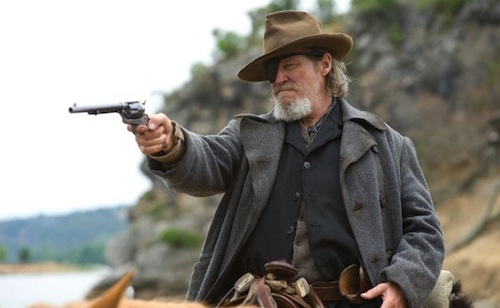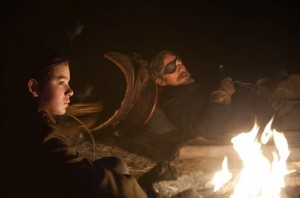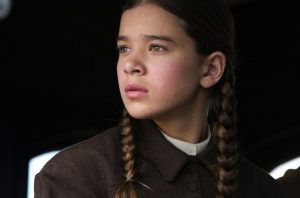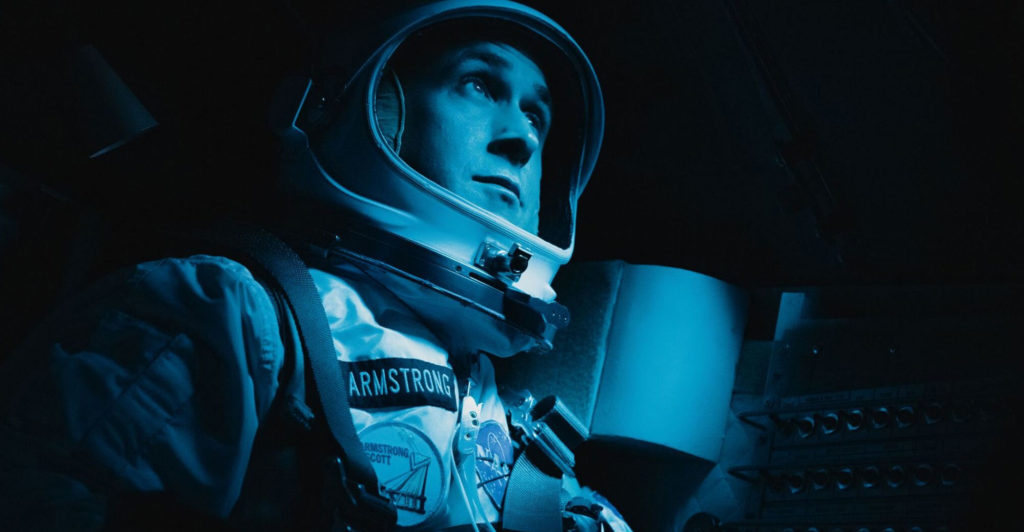
Any follower of Joel and Ethan Coen’s work watching True Grit for the first time will probably sit out most of the pair’s take on the Western waiting for the moment that the other shoe drops.
But the most confounding thing about True Grit is that it never does. Throughout its running time it is as “true as John Wayne’s gun” to the conventions of the Western.
Unlike most Coen brothers films, True Grit is a warm affirmation rather than a sly subversion of its genre. This character-driven Western is one of the most unexpected and rewarding turns from a major film-making talent since David Lynch temporarily abandoned his obsession with the bizarre for the sweet-natured The Straight Story (1999).

True Grit is based on a novel by Charles Portis, which also inspired a 1969 film directed by Henry Hathaway that starred John Wayne in his only Oscar-winning role. Precocious 14-year-old Mattie Ross (played by Hailee Steinfeld) hires an ageing gunslinger, Rooster Cogburn (Jeff Bridges), to help her track down the varmint that shot her father and bring him to justice. The cocksure LaBoeuf (a moustachioed Matt Damon) joins them on the trail of the murderous Tom Chaney (Josh Brolin).
The Coens tell the story with few of their trademark tics and flourishes. True Grit is largely free of the oddball characters, oblique cinematic references, and post-modern pranksterism that characterise their other films. It’s straightforward, elegant and classical in its approach — and it’s probably the best Western to come out of Hollywood since Clint Eastwood’s Unforgiven.
The Coens have positioned their film as a new adaptation of the novel rather than as a remake of the earlier film. Their script makes effective use of Porter’s dialogue, much of which also made it into Hathaway’s film completely intact. Although I have not read the book, the Coens’ film is apparently more faithful to the text and especially its denouement than is the Wayne movie. It’s that rare beast — the remake that is better than the original.

True Grit is a character-driven film, buoyed by strong performances from its entire cast. Many other Hollywood directors and scriptwriters could learn much from the convincing and subtle way the Coens handle the character arcs in True Grit. The ordeals that the characters endure catalyse changes in them that are believable and affecting.
Perhaps the most significant departure from the 1969 film is the fact that it is built around Mattie Ross as the central character, rather than Rooster Cogburn. Steinfeld’s performance earned a well-deserved Oscar nomination, though the Academy’s decision to nominate her as a best supporting actress rather than best actress is puzzling.
It is on her shoulders that the film rests since there are few frames where she is not present. Her character is stubborn, mocking and somewhat sanctimonious, yet Steinfeld gets you rooting for Mattie and her flint-hard resolve all the way to the end.
Bridges, who mumbles his way through the film as though his mouth is filled with pebbles, has also earned an Oscar nomination for his part as the pot-bellied, drunken lawman in True Grit. It’s a performance equal to his Oscar-winning turn in Crazy Heart, one that has layers of depth that John Wayne could only dream of.
Also worthy of note is the cinematography from Roger Deakins, who has collaborated with the Coen brothers on a number of their films, including No Country for Old Men. His work is always evocative, whether he is capturing the stark beauty of the American wilderness, a feverish night-time journey on horseback, or a shadow cast across Rooster Cogburn’s face.
Trimming back some of their usual weirdness appears to have paid off for the Coen brothers. True Grit is their most commercially successful film to date — it is the first of their works to take US$100m at the US box office. But one senses the Coen brothers care little for money.
True Grit trailer (via YouTube):
What, then, to make of True Grit’s celebration of courage and decency during hard times after the bleakness of No Country for Old Men and A Serious Man? It could reflect a hankering for a mythological West that had a moral order fixed in the stars and where justice prevailed in the end – a world far from the nihilism and disenchantment of the latter-day West in No Country.
On the other hand, it could mark a growth of the Coens from brash tricksters into mature establishment film makers. Maybe they’re just toying with our expectations. Trust the Coens to keep us guessing even when they’re playing it straight. — Lance Harris, TechCentral
Trailer for the original True Grit, with John Wayne (via YouTube):
http://www.youtube.com/watch?v=tN-j4GDqjv4
- Subscribe to our free daily newsletter
- Follow us on Twitter or on Facebook




